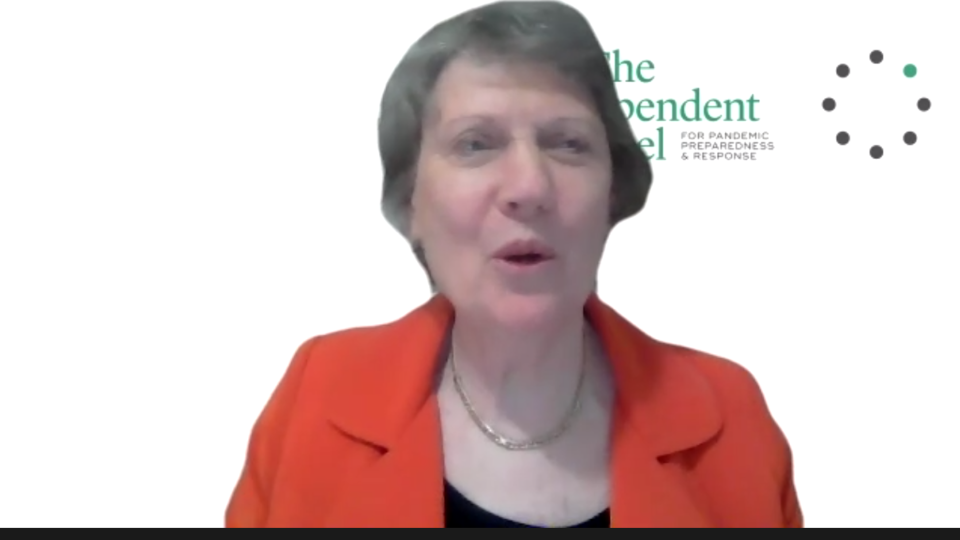Act now and reset our health systems: ICN calls for nurses to be the catalyst for the reset and a litmus test for its success

An interim report from the panel assessing the world’s response to the COVID-19 pandemic has praised nurses but raised concerns about what their efforts will cost the profession in the long run.
The Independent Panel for Pandemic Preparedness and Response reported its findings to the World Health Organization (WHO) Executive Board on 19 January 2021.
The central message of the report is that the world was not ready for the pandemic and it must do better in the future.
It includes information from the International Council of Nurses’ (ICN) December 2020 webinar, in which nurses from around the world shared their experiences with one of the panel’s Co-chairs, the Rt Hon Helen Clark, who is a former Prime Minister of New Zealand.
The report acknowledges the dire shortage of nurses world-wide, and highlights worries about so many nurses being burned out and planning to retire from the profession earlier than planned, directly as a result of the impact of the COVID-19 pandemic.
Speaking to the WHO Executive Board at the meeting, the other Independent Panel Co-chair, former President of Liberia Ellen Johnson Sirleaf said: “We need to listen more to healthcare workers and heed their advice. Draw on the knowledge of those who manage local responses.”
Ms Clark said: “The world needs to do two things: Act more decisively now to stem the pandemic, and fundamentally reset preparedness and response systems to help ensure that this can’t happen again.”
ICN Chief Executive Officer Howard Catton said the Independent Panel had understood just how vital nurses have been during the pandemic, the terrible strains they are under and their crucial roles in the future.
“Clearly Ms Sirleaf and Ms Clark understand the fault lines that the pandemic has exposed: the global shortage of nurses is emblematic of the world’s lack of preparedness for a pandemic. The world will need an additional ten million nurses by 2030, otherwise a deeper chasm will appear between the healthcare available in affluent countries and low and middle-income countries. And WHO Director General Tedros Adhanom Ghebreyesus has this week described the current situation as the world being on the edge of a catastrophic moral failure with the overwhelming number of vaccines delivered so far being in higher income countries. ICN has called for the prioritisation of healthcare workers globally for vaccines. But our National Associations report slow progress and an unequal start. With 90% of the global nursing workforce being women, and 89% of shortages being in low- and middle-income countries, we are deeply concerned that we might be continuing on a path that exacerbates inequalities, rather than eradicates them.
‘Nurses are at the heart of the pandemic response: they are central to the future management of COVID-19 and to the restoration of health services that have been neglected during the pandemic. Governments must do whatever it takes to invest in the recruitment and retention of nurses to give us a chance of delivering the global ambition of accessible and affordable health services for all.
‘Resetting our health systems will require governments to invest in nursing jobs, education and leadership, as outlined in last year’s WHO/ICN State of the World’s Nursing (SOWN) report. The experiences of the nursing profession will provide a litmus test of governments’ delivery on their commitments, and a catalyst for the changes required in health systems everywhere.”
Download the press release here